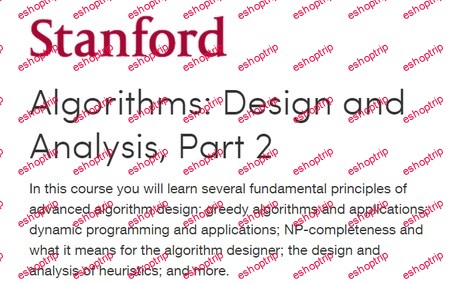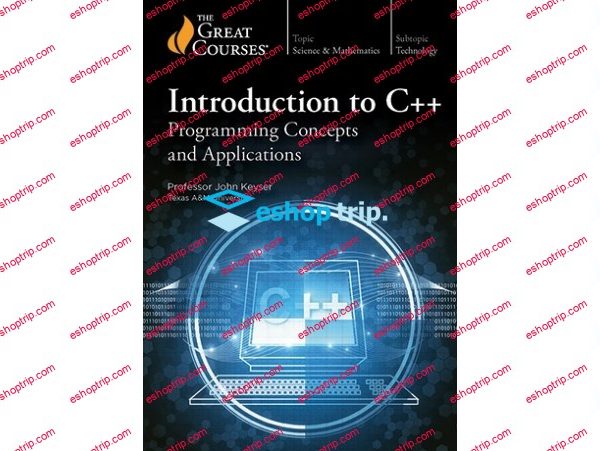WEBRip | English | MP4 | 960 x 540 | AVC ~21.7 kbps | 15 fps
AAC | 113 Kbps | 44.1 KHz | 2 channels | ~30 hours | 3.65 GB
Genre: eLearning Video / Computer Science, Programming
Algorithms are the heart of computer science, and the subject has countless practical applications as well as intellectual depth. This course is an introduction to algorithms for learners with at least a little programming experience. The course is rigorous but emphasizes the big picture and conceptual understanding over low-level implementation and mathematical details. After completing this course, you will be well-positioned to ace your technical interviews and speak fluently about algorithms with other programmers and computer scientists.
Specific topics include: “Big-oh” notation, sorting and searching, divide and conquer (master method, integer and matrix multiplication, closest pair), randomized algorithms (QuickSort, contraction algorithm for min cuts), data structures (heaps, balanced search trees, hash tables, bloom filters), graph primitives (applications of BFS and DFS, connectivity, shortest paths).
About the instructor: Tim Roughgarden has been a professor in the Computer Science Department at Stanford University since 2004. He has taught and published extensively on the subject of algorithms and their applications.
Syllabus:
Week 1
Introduction; “big-oh” notation and asymptotic analysis; divide-and-conquer basics.
Week 2
The master method for analyzing divide and conquer algorithms; the QuickSort algorithm and its analysis; probability review.
Week 3
Linear-time selection; graphs, cuts, and the contraction algorithm.
Week 4
Breadth-first and depth-first search; computing strong components; applications.
Week 5
Dijkstra’s shortest-path algorithms; heaps; balanced binary search trees.
Week 6
Hashing; bloom filters.
Week 7
Final exam (1 attempt per 24 hours)
Specific topics in Part 2 include: greedy algorithms (scheduling, minimum spanning trees, clustering, Huffman codes), dynamic programming (knapsack, sequence alignment, optimal search trees, shortest paths), NP-completeness and what it means for the algorithm designer, analysis of heuristics, local search.
About the instructor: Tim Roughgarden has been a professor in the Computer Science Department at Stanford University since 2004. He has taught and published extensively on the subject of algorithms and their applications.
Syllabus
Week 1
Two motivating applications; selected review; introduction to greedy algorithms; a scheduling application; Prim’s MST algorithm.
Week 2
Kruskal’s MST algorithm and applications to clustering; advanced union-find (optional); Huffman codes.
Week 3
Dynamic programming: introduction, the knapsack problem, sequence alignment, and optimal binary search trees.
Week 4
The Bellman-Ford algorithm; all-pairs shortest paths.
Week 5
NP-complete problems and exact algorithms for them.
Week 6
Approximation and local search algorithms for NP-complete problems; the wider world of algorithms.
Final Exam
Final exam (1 attempt per 24 hours)











Reviews
There are no reviews yet.